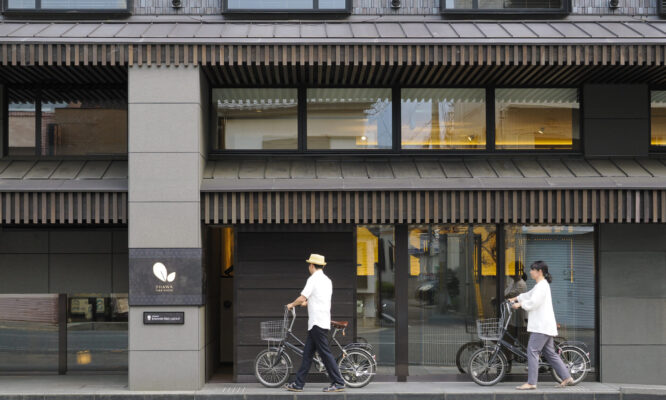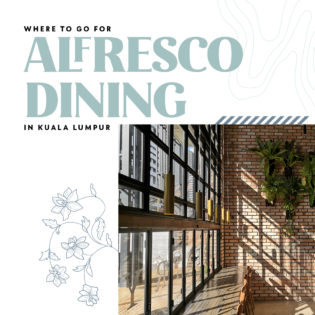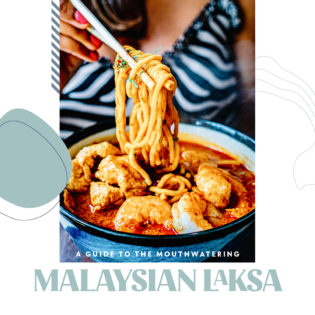Chef Darren Teoh takes a revelatory turn with Malaysian produce
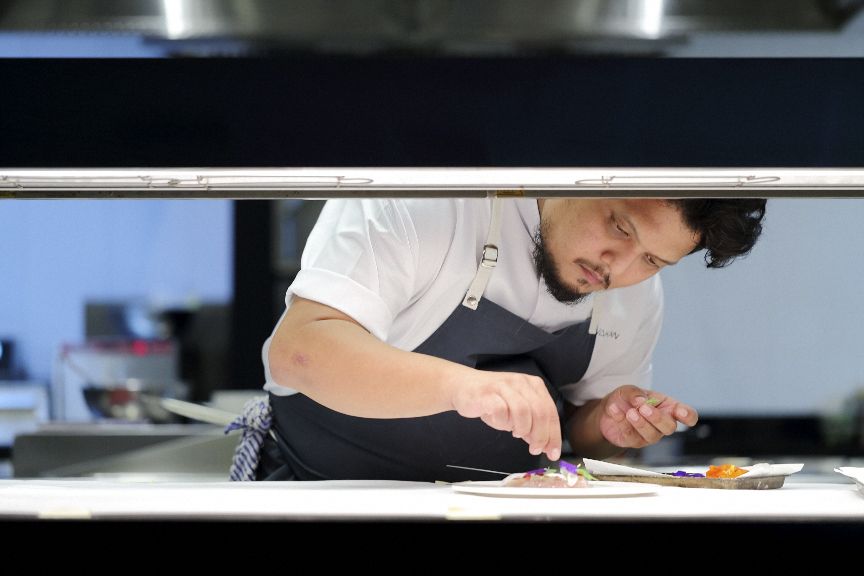
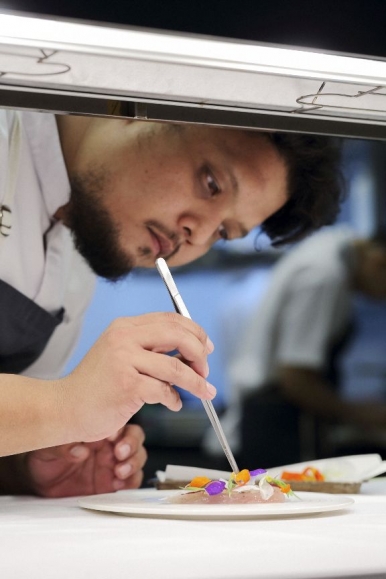
Open for barely a year, Chef Darren Teoh’s first restaurant, Dewakan, has fast blossomed into one of Malaysia’s most acclaimed eateries, smashing the boundaries of the country’s cuisine by refashioning local produce in exhilaratingly ambitious ways.
For Darren, it’s the fruition of a decades-long culinary journey that started at home. “I remember sitting in the kitchen while my mum taught me multiplication tables and prepared dinner. I was tasked with responsibilities like scraping coconuts and peeling shallots,” Darren reminisces. “Then later, when everyone was asleep, I’d sneak into the kitchen and scrounge through whatever was in the fridge, chuck some ingredients into a bowl of instant noodles and see what worked. That’s how I learned to cook – even though cooking in the dark was not the easiest thing!”
It would nonetheless be a long time later before cooking as a career crossed Darren’s mind. As a schoolboy in the 1990s, Darren recalls relishing football but little else. When the Internet surfaced, he considered graphic design as a means to express himself. But Darren’s father recognised his knack for being unconventional and suggested he pursue a local course in culinary arts after high school – even though nobody in Darren’s family had ever cooked professionally.
At the outset, Darren paid his dues by toiling in restaurants like Breizh and Le Bouchon, which were among Kuala Lumpur’s top French establishments at the turn of the millennium. Restless to broaden his horizons, he later moved to Singapore, honing his craft at Les Amis and Au Jardin; it was in Singapore that he realised he wanted to dedicate his life’s work to the rapture of being part of a buzzing restaurant.
Darren credits Au Jardin with planting the seeds of using local produce in his imagination. “No turbot, salmon or monkfish that has to travel several hours to reach your kitchen can be as spectacular as a freshly caught local grouper,” he says. “Cut a sliver of the fresh fish, place it in your mouth, and the taste of the brininess of the sea will blow your mind. In the same way, a carrot flown in from another country won’t compare to one just out of the ground.”
When Darren returned to KL five years later, he found no restaurants that captured his attention, so he turned to culinary teaching at colleges and even wrote a book that applied molecular gastronomy to Malaysian recipes. He also spent time in Europe before embarking on a nearly three-year-long endeavour to create Dewakan in collaboration with Malaysia’s KDU University College, where Darren has taught.
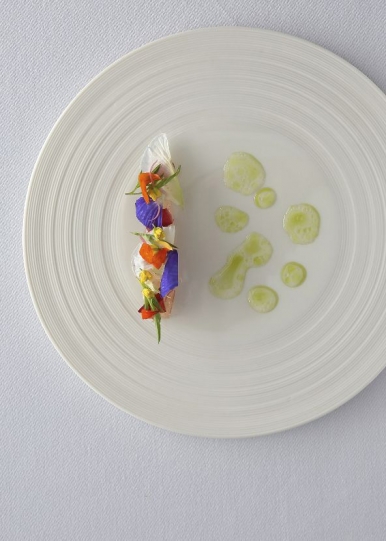
Tucked on the Shah Alam city campus of KDU University College, almost an hour’s drive from the heart of Kuala Lumpur, Dewakan might seem an unlikely location for culinary thrills. But as fans who’ve flocked here can attest, the restaurant spills over with surprises.
“We want to be the go-to place for modern Malaysian cuisine, using produce that comes from within the country, putting an emphasis on the ingredients, taking something that may be traditional and finding an innovative way to present it with a story to tell,” Darren says.
Dewakan celebrates the harvest of Malaysia’s land and the bounty of its seas. The menu’s highlights from past and present include crispy edible 'twigs' with mayonnaise made with fermented fish sauce; a congee of glutinous black Forbidden Rice with ox tongue & soft-boiled egg, poured over with mushroom broth enhanced with mandarin peels; and cured blue mackerel with pomelo, pickled local flowers and Ulam Raja herbal salt.
Ask Darren about any of his dishes, and expect an insightful explanation into how his kitchen tries to interpret Malaysian produce through a contemporary lens. For the mackerel, it’s inspired by umai, the ceviche of Malaysia, eaten especially by the indigenous fishermen of Sarawak state in Borneo. “We wanted to serve something raw from the sea and pair it with something from the land – in this case, Ulam Raja salt, which complements the fish’s brininess and adds a different dimension with pronounced flavours,” he says.
Now in his mid-30s, Darren has had many conversations over the years about the potential of Malaysian produce and why people haven’t capitalised on it. Speak with him, and you’ll hear thoughtful reflections on how using local produce can buoy the economy, boost healthfulness and even nurture a country’s culinary identity, similar to how certain French and Thai dishes have become globally iconic.
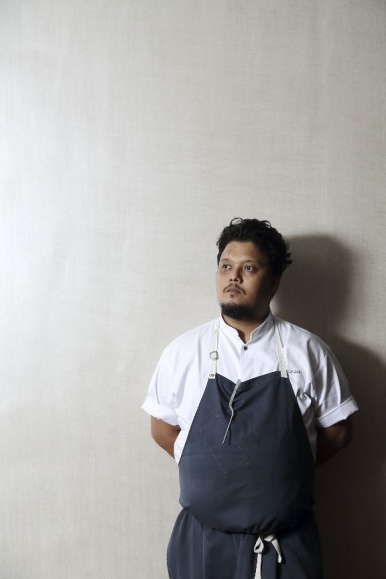
He’ll signal his sentiments that Malaysia’s national dish, nasi lemak (coconut milk rice), may have lost a sense of roots partly because it’s often made with imported rice and cucumbers. And he’ll pluck fresh herbs from the garden outside Dewakan, beckoning you to sniff and taste them to discern what they can bring to a recipe.
“Personally I don’t think what I’m doing is necessarily trail-blazing,” Darren insists. “Creativity is very subjective. It’s about removing yourself from the inhibitions of what something should be and looking at what it can be.”
